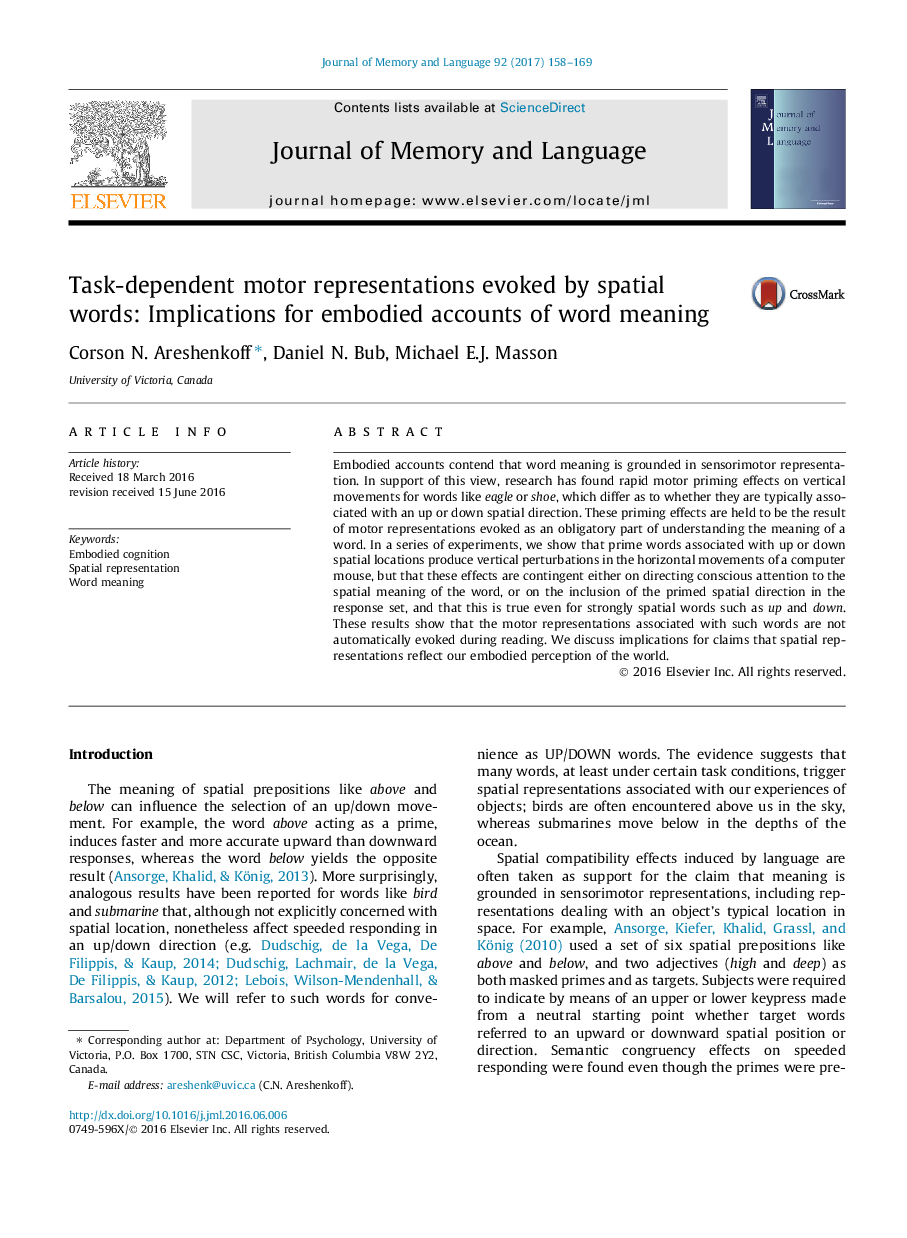| Article ID | Journal | Published Year | Pages | File Type |
|---|---|---|---|---|
| 931741 | Journal of Memory and Language | 2017 | 12 Pages |
•We studied spatial representations evoked by words connoting up/down directions.•Spatial words induce vertical perturbations in horizontal computer mouse movements.•These effects require attention to spatial meaning, or trials with up/down responses.•Spatial representations are not automatically evoked during word reading.•Evocation of spatial representations by words depends strongly on task requirements.
Embodied accounts contend that word meaning is grounded in sensorimotor representation. In support of this view, research has found rapid motor priming effects on vertical movements for words like eagle or shoe, which differ as to whether they are typically associated with an up or down spatial direction. These priming effects are held to be the result of motor representations evoked as an obligatory part of understanding the meaning of a word. In a series of experiments, we show that prime words associated with up or down spatial locations produce vertical perturbations in the horizontal movements of a computer mouse, but that these effects are contingent either on directing conscious attention to the spatial meaning of the word, or on the inclusion of the primed spatial direction in the response set, and that this is true even for strongly spatial words such as up and down. These results show that the motor representations associated with such words are not automatically evoked during reading. We discuss implications for claims that spatial representations reflect our embodied perception of the world.
